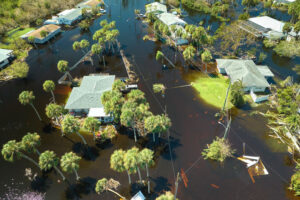Written by Sam Medley

Florida is home to more aging residents, immigrants, children in foster care, individuals experiencing homelessness, and veterans than almost any other state. As the state’s social workers serve these high-needs populations, there’s perhaps no skill they rely on more than case management.
Case management is something that almost every social worker does — a lot. One NASW (National Association of Social Work) survey found that a large cross section of social workers spend as much as half their workweek on case management duties.
When there’s complex, multi-layered care that involves any combination of healthcare, food and housing assistance, mental and behavioral health screening and assessment, or any other service, somebody has to coordinate it all, track the case to ensure each need is being met appropriately, and document progress along the way.
So it’s also true that when clinicians and other frontline social workers need to coordinate care with other providers and manage the documentation and filing involved, they sometimes turn to case management specialists to help carry the weight of that work.
A case is more than a collection of referrals and treatment plans, though. Every case is quite literally a person or a family who has come into Florida’s social safety net to access the support they need. Case management, then, is more than just the act of connecting dots between people and services. It’s the process of handling each case with individualized support and humanity.
Case Management Specialists Provide Back-Up for Florida’s Clinicians and Other Frontline Social Workers
As you can imagine, for a Licensed Clinical Social Worker (LCSW) with a life that revolves around connecting with clients to perform needs assessments, diagnoses, and counseling, pulling double-duty on the case management side to coordinate care with other providers, and then file and organize the reams of paperwork in each clients’ folder can be enough to pull them away from core duties. Luckily, they can lean on case management specialists to help manage the load.
However, handling paperwork and reaching out to other social service providers is only one part of a case manager’s job. They also:
- Conduct intake interviews and assessments.
- Share assessments with their colleagues (nurses, mental health professionals, other social workers, etc.).
- Keep meticulous records about each client and monitor their progress.
- Help other social workers gather resources for their clients.
- Coordinate services between their agencies and other organizations.
- Educate clients about available resources and help them sign up.
- Educate families, loved ones, and caregivers about how they can help and give them support resources, too.
- Advocate for their clients’ rights and ensure they receive fair treatment from service providers.
After looking over these responsibilities, it’s easy to imagine what traits a talented case manager might need — resourcefulness, creativity, and the ability to communicate clearly. But above all else, case managers need to be compassionate when helping clients and persistent when navigating the sometimes overwhelming world of Florida social services.
This is especially true in specialty areas where clients have particularly complex needs that intersect with different social services agencies and programs:
- Child welfare
- Medical social work
- Gerontology social work
- Unhoused services
- Military social work
- Mental health social work
- Forensic social work
And nowhere is this truer than it is with Florida’s massive network of immigration social work services and providers.
Many recent immigrants have gone through trauma, are disconnected from their support networks, and may not be able to communicate clearly with some of the people they need help from. A talented bilingual case manager can connect them to culturally-appropriate resources and ensure they’re not being taken advantage of.
Disaster Response Involves Florida’s Entire Social Services Network, Relying on Case Management to Tie it All Together
 When Hurricanes Ian and Nicole slammed the state back-to-back in 2022, an estimated million residents were displaced. As of this writing, we are still learning the tragic tole of Hurricane’s Helene and Milton.
When Hurricanes Ian and Nicole slammed the state back-to-back in 2022, an estimated million residents were displaced. As of this writing, we are still learning the tragic tole of Hurricane’s Helene and Milton.
And if immediate damage isn’t bad enough when these tragedies unfold, there are also severe long-term repercussions. Lives lost can mean a family loses the primary breadwinner, and along with that, stable housing and other basic necessities are in jeopardy.
While FEMA and other emergency response agencies are on scene, Florida’s social services network is there to help pick up the pieces – both literally and figuratively.
Following large-scale crises, the Florida DCF often lifts SNAP benefit restrictions and gives more people more ways to keep their families fed. They open family resource centers staffed by behavioral health professionals called Hope Navigators who are specially trained to help people in crisis.
Case managers are central to these efforts. Like triage nurses in busy ERs, they assess needs, funnel people to the right agencies, and support their frontline colleagues. No matter what field of social work you get into in Florida, as a case manager, your talents will be indispensable when the next storm hits.
Getting Into Case Management in Florida’s Social Services Community with a BSW or MSW

The Florida Board of Clinical Social Work, Marriage & Family Therapy, and Mental Health Counseling only offers two full social work credentials: Licensed Clinical Social Worker (LCSW) and Certified Master Social Worker (CMSW). Both require Master of Social Work (MSW) degrees.
The good news is that there are plenty of opportunities to work in case management as a way to support licensed social workers with Bachelor of Social Work (BSW) degrees.
Social service agencies often hire BSW grads to handle administrative and support duties such as scheduling client meetings, preparing case reports, and coordinating services with other agencies — all duties that fall firmly within a case manager’s skill set. And just as importantly, those skills are taught by accredited BSW programs all across Florida.
If you do decide to pursue an MSW, you’ll either choose a clinical track that prepares you for LCSW licensure for the legal authority to provide clinical counseling services, or a generalist track for mezzo- and macro-level social work outside the clinical setting. In both cases, there are opportunities to specialize by population (everything from child welfare to veterans services to serving the elderly) and by service specialty (everything from medical social work to social policy).
That being said, there are a few career tracks and related MSW concentrations that are particularly heavy in case management by nature.
Working with people suffering from mental and behavioral health issues such as depression, anxiety, substance use disorder, and PTSD, naturally comes with a lot of intersectional support, from transitional housing arrangements to food assistance.
Many healthcare providers in Florida require their case managers to have MSWs. That’s because medical case managers (or care managers as they’re sometimes called) don’t just work with other social service professionals. They need to be able to coordinate with doctors, nurses, insurance providers, and other healthcare professionals, as well.
Accessing healthcare can be tricky for anybody, but particularly for people on the margins dealing with chronic illness. They will certainly need help covering the cost of treatment, but also with coping with the psychological toll of illness, or just understanding their rights as patients. By studying medical social work at the masters level, you’ll be prepared to help them through all of it.
If you’re prepared to invest a little more time into your graduate studies, you can sharpen your case management skills by pursuing a dual degree, allowing you to earn a respected degree in an adjacent field alongside your MSW in about three years.
If you’re interested in coordinating services for the victims of violent crimes, at-risk youth, or other people involved with the criminal justice system, you can pursue a dual degree in social work and criminal justice.
Or if public health education and accessibility is how you see yourself serving marginalized groups in Florida, you can pair your MSW with a Master of Public Health (MPH).
National Certifications Showcase Your Skills in Case Management
Because case management is an essential skill for all social workers, it can be hard to highlight a unique level of talent and mastery of those skills when applying for promotions and new jobs. Fortunately, though, you can show off your prowess by getting certified in case management through a number of national agencies.
The National Association of Social Workers (NASW), the country’s largest professional organization for social workers, offers two case management certifications:
- Certified Social Work Case Manager (C-SWCM): available to BSW grads with three years of case management experience. This might be a great option if you’re not quite ready to dive into an MSW.
- Certified Advanced Social Work Case Manager (C-ASWCM): available to MSW grads with two years of case management experience.
Outside of the NASW, you may also want to explore the Certified Case Manager (CCM) credential offered through the Commission for Case Management Certification (CCMC). Designed specifically for healthcare case managers, the CCMC developed this credential with NASW input. As an added bonus, if you’re already a C-SWCM through the NASW, you can take the CCM exam at no additional cost.
Florida’s Top Employers for Case Management Social Workers

Expert case managers have a place in just about any social service agency, but the big state agencies are the ones driving demand for these specialists at every level:
- Florida Department of Children and Families: the state’s main social service provider and an access point for public assistance services of all kinds.
- Florida Department of Health: a government agency that provides a number of health education and advocacy services to communities across the state.
- American Legion, Department of Florida: a nonprofit that provides a wide range of services to veterans and their families.
- Children’s Home Society of Florida: a nonprofit that provides and facilitates foster care, counseling, and other family services.
You can find more opportunities by exploring county and state court systems, community-based advocacy organizations, and healthcare organizations.
Actually, if medical case management is particularly appealing, Florida is a great place to be. The state is home to hundreds of hospitals, health care systems, and senior living communities — all of which need case managers to help their clients and patients.
